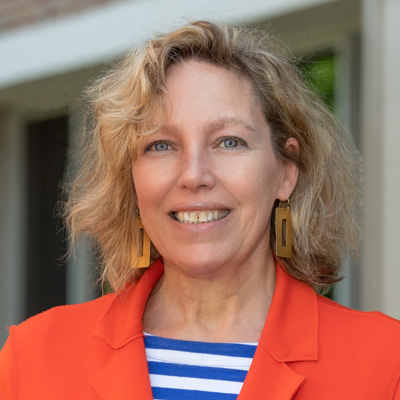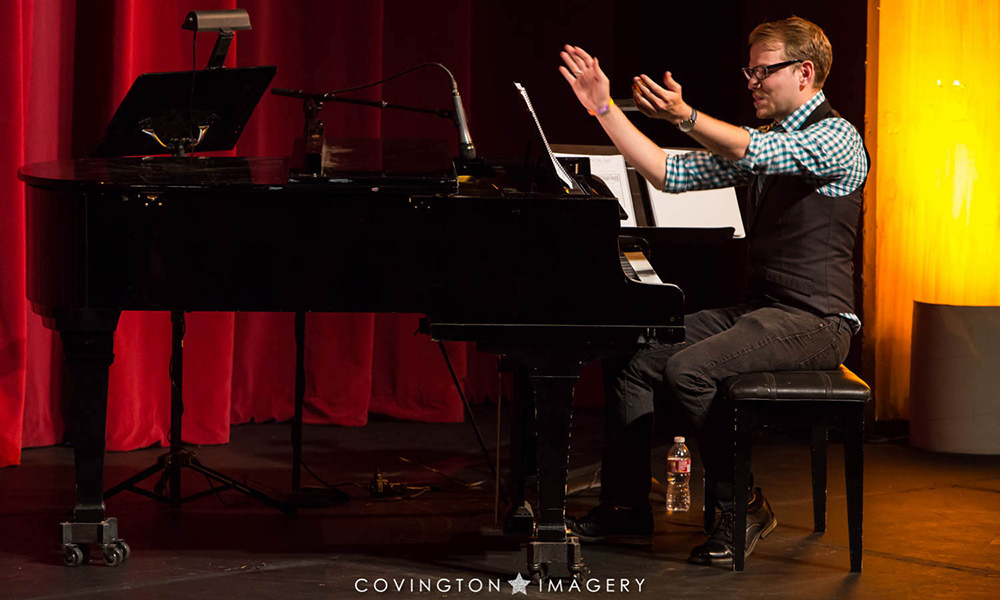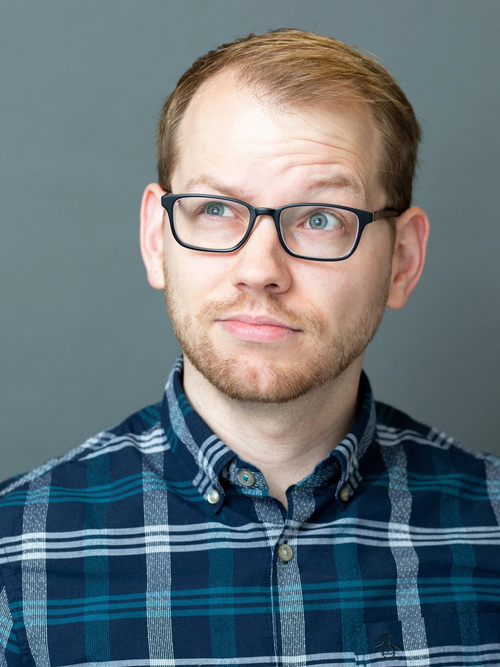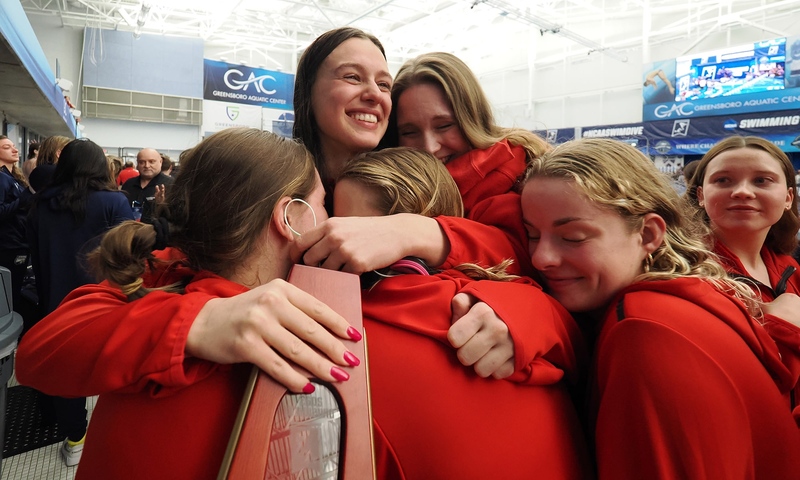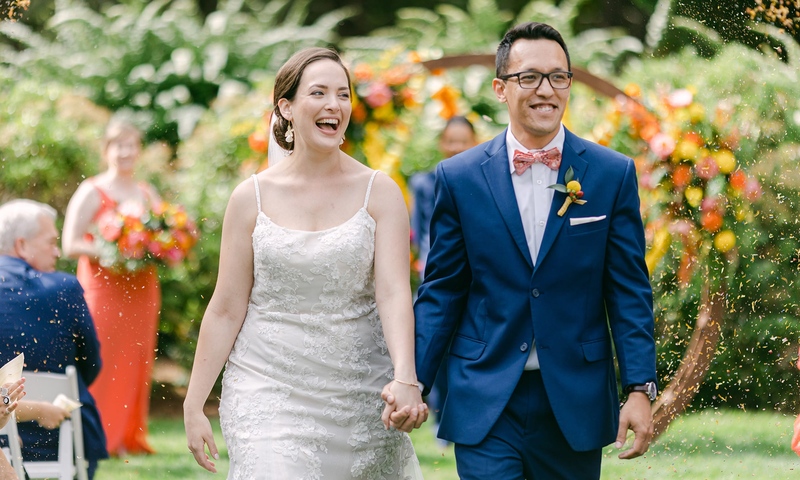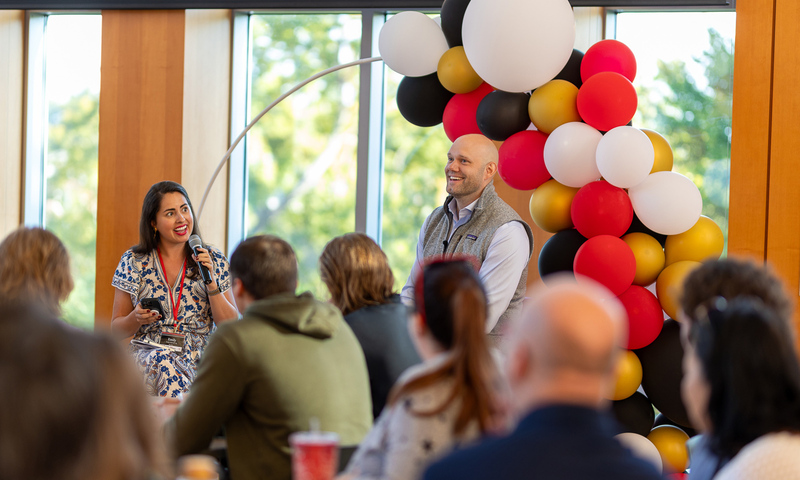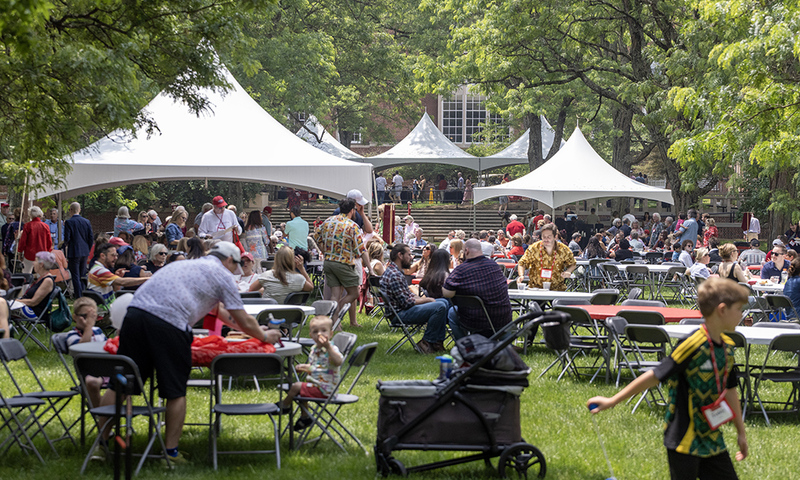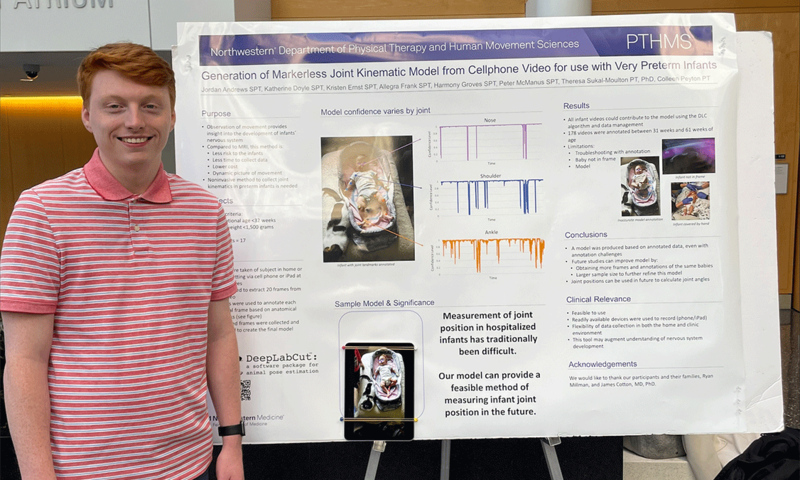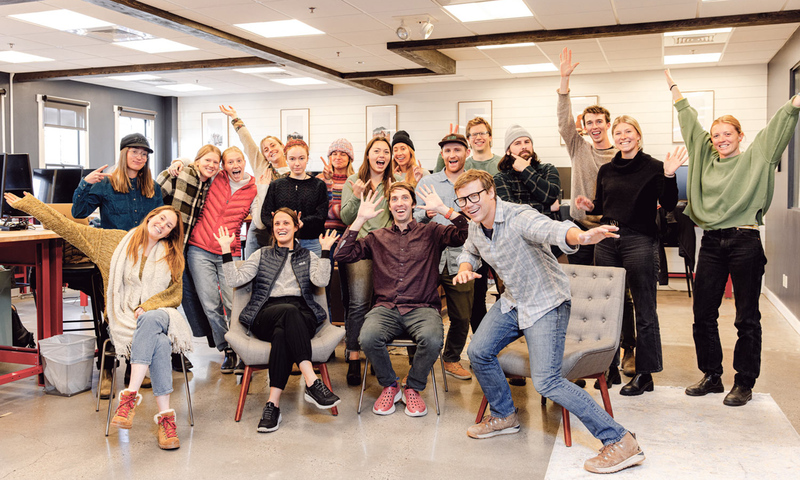Bryan Blaskie ‘09, music composition and cinema major, has been racking up success in the world of musical theater. Moving to LA after graduation, he composed the music for “Assistants,” which won the award for the StageScene Best World Premiere Musical, “I Wish,” and “Victorian Courting & Zombies.” And he directed the music of “Boy from Oz,” “110 in the Shade,” ”The Max Factor Factor,” and “Tonya Harding: The Musical.”
Now Blaskie is in New York, opening his musical “Nothing to See Here,” “which is the show I want Denison to do one day. It’s about the Scopes Monkey Trial, set in a small rural town that loves bluegrass…so basically Granville,” he says.
Blaskie shares his thoughts about the bright lights of Broadway and why getting a bad grade can actually be a good thing.
When did you begin to fall in love with musical theatre?
I saw a community production in Columbus of a little-known musical called “Bat Boy” when I was in high school. It was such a funny, clever, and compelling musical with a powerful rock-inspired score that completely changed my understanding of what musical theatre could be. Until that moment, I hadn’t been exposed to much musical theatre except through the classics. I had no idea musicals existed beyond “Sound of Music” and “Wizard of Oz”.
What did you learn at college that impacts your work today?
I spent most of my Denison career on the Fine Arts Quad. If it weren’t for the requirements of having to take other classes across disciplines (you know, that whole “liberal arts” thing), I probably wouldn’t have. However, it was that exact exposure to classes like Religion, Women’s Studies, History, and more that shaped the content of my music. I try to bring those critical thinking skills to the stories I write.
Can you tell me about a favorite class or professor?
I’ll never forget the moment that changed my entire approach to learning. I was in Theory of Cinema with Dr. Jane Greene and I turned in an unimpressive paper that received a deservedly low grade. I was shocked that she saw through my bull, but I’m so glad that she did. She knew that I was struggling with thinking about film as an artform that could be critiqued as such. She pushed and challenged me to come up with original arguments that could be supported by specific evidence. I spent so much time trying to come up with the “right” answer to subjective questions, but Dr. Greene taught me that there are rarely right answers—just good arguments.
Can you tell us about your career path? By any chance have any Denisonians helped along the way?
After Denison, I moved to LA to pursue film production and film scoring. There were countless alumni who mentored and guided me along my way like Mo Stemen ‘07 and Dean Hansell ‘74.
As I explored the entertainment industry, I started earning an income as a pianist and accompanist. I fell into the LA theatre community without realizing that music directing was even a career possibility. I was still itching to compose, but I found myself interested in songs and theatre instead of scores and film. I decided to study the art of musical theatre writing, so I enrolled in a master’s program at NYU. I’ve stayed in New York since.
“A career only comes by finding your individual voice and your individual way of expressing it.”
What does being a musical composer look like in your daily life? Can you give us a snapshot?
Daily life is bizarre enough as it is right now, but I’m grateful to be working for a performing arts college that has been providing me with an income throughout the pandemic.
Writing a musical takes a long time and a lot of money, and there are countless developmental steps before it ever sees a production. Once I finish a draft of a scene or song, I’ll call a performer friend to have them read it aloud or sing it. It’s necessary to hear songs in someone else’s voice—if not, it’s just me singing to myself. Getting fresh ears and eyes can help uncover what is or isn’t working in a draft before diving back in for rewrites. I was working on one song for almost three years before I was happy with it.
Do you have any advice for college students who are interested in a career in the arts?
I always wanted to find the “corporate ladder” equivalent to a career in the arts, but there just isn’t one. Each artist makes their own path based on their own artistic vision and interest. A career only comes by finding your individual voice and your individual way of expressing it.
If you could describe yourself in three words, what would they be?
Critical, evolving, instinctual
